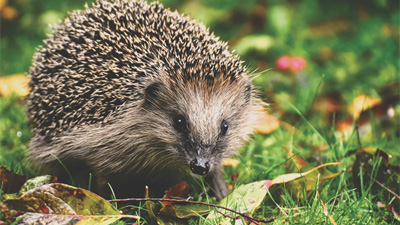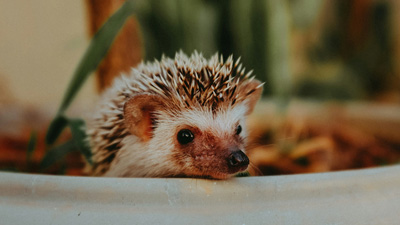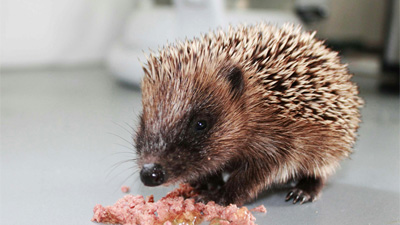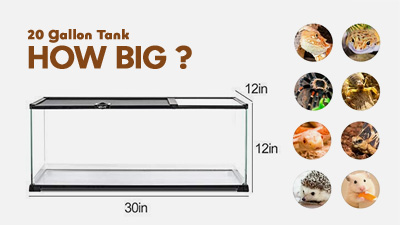What Do Hedgehogs Drink? Clean, Filtered Water

Photo by Dušan veverkolog on Unsplash
Hedgehogs, with their adorable appearance and quirky habits, have become beloved pets around the world. As caretakers of these delightful creatures, it's crucial to understand their dietary needs thoroughly, including their hydration requirements. While we often focus on providing the right food for hedgehogs, ensuring they have access to clean, fresh water is equally important for their health and well-being.
In this comprehensive guide, we delve into the fascinating world of hedgehog hydration, exploring what hedgehogs drink, how much water they need, and the best practices for keeping them properly hydrated.
Natural Hydration Sources for Hedgehogs
In the wild, hedgehogs obtain moisture from various natural sources, including dew, rainwater, and the fluids found in their prey. These resourceful creatures are skilled at foraging for water-rich insects, fruits, and vegetation to supplement their hydration needs. Additionally, hedgehogs have been known to lap water from puddles or shallow pools when available, demonstrating their adaptability in seeking out hydration in their natural habitat.
Domestic Hedgehog Hydration Needs
As pets, hedgehogs rely on their caregivers to provide them with access to clean, fresh water at all times. While hedgehogs obtain some moisture from their food, especially fresh fruits and vegetables, they still require a readily available source of water to meet their hydration needs. Proper hydration is essential for maintaining healthy bodily functions, aiding digestion, regulating body temperature, and supporting overall well-being in hedgehogs.
What Type of Water is Best for Hedgehogs?
Water is the primary beverage for hedgehogs, serving as their main source of hydration in captivity. Tap water is generally safe for hedgehogs to drink, as long as it is treated and free from any contaminants.
However, it is important to note that hedgehogs are sensitive to chlorine, which is often present in tap water. Chlorinated water can irritate their delicate digestive systems and cause digestive upsets. Therefore, it is recommended to use filtered or bottled water for hedgehogs to avoid potential health issues.
When choosing filtered or bottled water, it is crucial to ensure that it is free from any additives or minerals that could be harmful to hedgehogs. Avoid using water that contains chemicals like fluoride, which can be detrimental to their health. Additionally, it is essential to consider the temperature of the water provided. Hedgehogs prefer drinking water that is room temperature or slightly warm. Cold water can be uncomfortable for them to consume, and excessively hot water can cause burns or scald the hedgehog's mouth, making them reluctant to drink.
Aside from providing a suitable water source, it is important to encourage hedgehogs to drink water regularly. Some hedgehogs may need a little extra encouragement to drink water, particularly if they are not sufficiently hydrating through their food.
Hydration Tips for Hedgehog Caregivers
Here are some practical tips for ensuring hedgehogs stay hydrated and healthy:
Provide Fresh Water Daily: Replace the water in your hedgehog's dish or water bottle with fresh, clean water every day to prevent contamination and ensure it remains enticing for drinking.
Wetting and offering favorite foods: Hedgehogs often enjoy the taste of certain foods, such as wet cat food or mealworms soaked in water. By wetting these foods, you can provide additional hydration while also satisfying their taste preferences.
Offer Hydrating Foods: In addition to water, incorporate moisture-rich foods into your hedgehog's diet, such as fresh fruits (e.g., watermelon, cucumber) and vegetables (e.g., lettuce, zucchini). These foods can contribute to overall hydration and provide essential nutrients.
Encourage Hydration: Some hedgehogs may be hesitant to drink from a water bottle initially. Encourage hydration by offering water from a shallow dish or providing a water bottle with a sipper tube that mimics lapping from a puddle.
Monitor Water Intake: Pay attention to how much water your hedgehog consumes daily. While individual water needs may vary, a general guideline is to ensure hedgehogs have access to at least one ounce of water per day, although they may drink more during warmer weather or if they consume dry food.
Check for Dehydration Signs: Monitor your hedgehog for signs of dehydration, such as sunken eyes, dry or tacky gums, lethargy, and decreased skin elasticity. If you suspect dehydration, seek veterinary care promptly to address the issue.
Potential Hydration Concerns
While providing access to fresh water is crucial for hedgehog health, there are some considerations to keep in mind:
Avoid Water Hazards: Hedgehogs are small and may accidentally fall into deep water dishes, leading to potential drowning. Use shallow dishes or consider providing a water bottle with a sipper tube to minimize the risk of accidents.
Prevent Water Contamination: Ensure water dishes are cleaned regularly to prevent bacterial growth and contamination. Wash dishes with mild soap and water, rinse thoroughly, and refill with fresh water daily.
Address Health Issues Promptly: Certain medical conditions or illnesses can affect hedgehog hydration levels. If you notice changes in your hedgehog's water intake or behavior, consult with a veterinarian experienced in exotic pet care for evaluation and treatment.
Conclusion
While water is the primary source of hydration for hedgehogs, it is worth mentioning that they should not be given other types of liquids like milk or fruit juices. Hedgehogs are lactose intolerant, and dairy products can cause digestive upset and other health problems. Fruit juices, on the other hand, contain high amounts of natural sugars, which are not suitable for hedgehogs.
In conclusion, providing hedgehogs with clean, filtered water is essential to ensure their hydration and overall well-being. Avoid using tap water with high chlorine levels and opt for filtered or bottled water, free from harmful additives. Remember to regularly change the water, offer a shallow dish or water bottle, and consider moistening your hedgehog's favorite foods to promote hydration.
You May Also Like
 Other PetsWhat Does a Hedgehog Eat?
Other PetsWhat Does a Hedgehog Eat? Other PetsWhat is the Best Food for Hedgehogs?
Other PetsWhat is the Best Food for Hedgehogs? Other Pets10 Forbidden Foods for Hedgehogs
Other Pets10 Forbidden Foods for Hedgehogs Other PetsHow Long Do Hedgehogs Live as Pets? Average 6-8 Years
Other PetsHow Long Do Hedgehogs Live as Pets? Average 6-8 Years Pet Names60 Good Names for Pet Hedgehogs (with Meaning)
Pet Names60 Good Names for Pet Hedgehogs (with Meaning) Other PetsHow Big is a 20-Gallon Reptile Tank in Inches?
Other PetsHow Big is a 20-Gallon Reptile Tank in Inches?